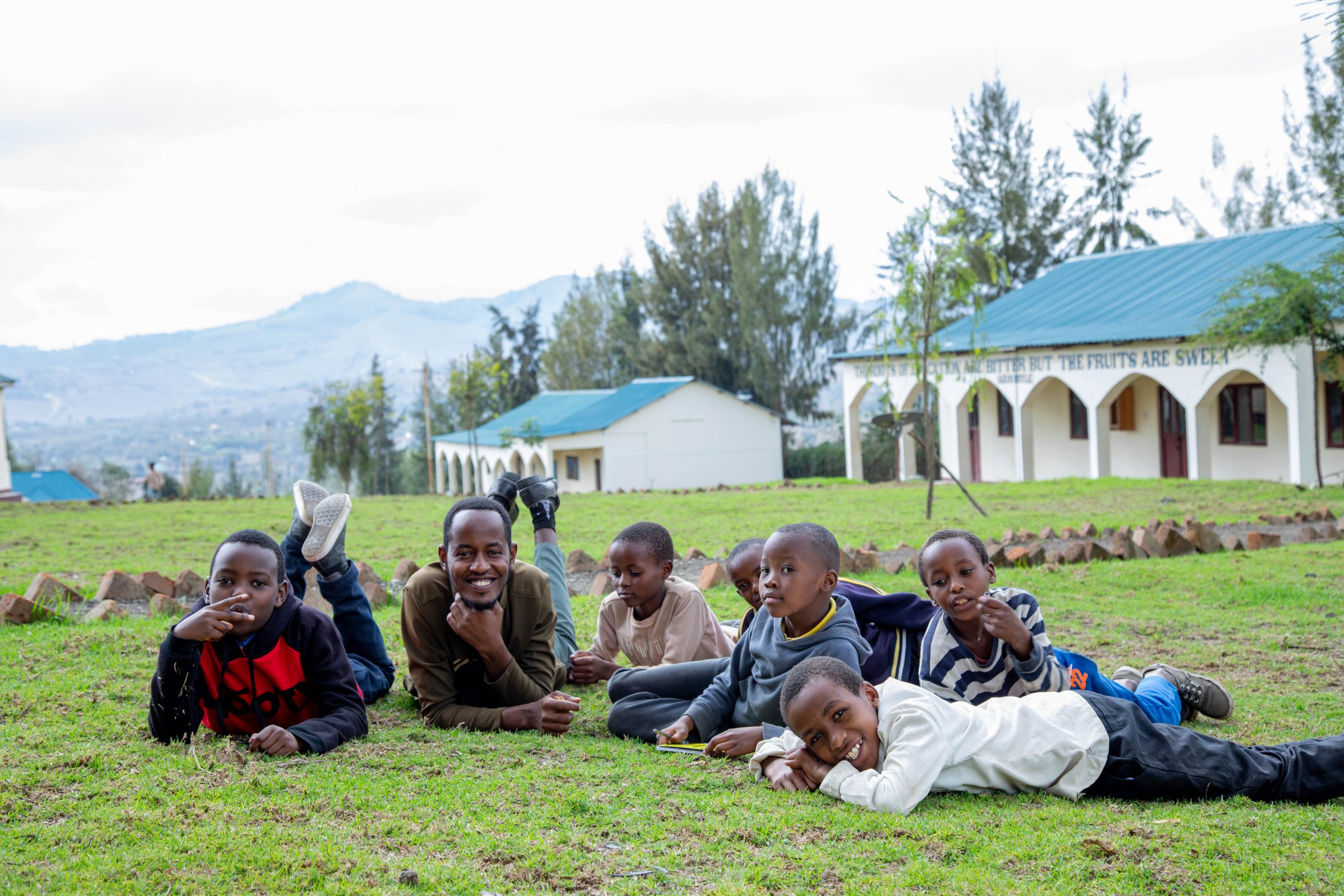
Empowering Futures with Our Services
Changing Lives: Explore Our Community Support Programs
Our Life-Changing Current Programs
Explore Builders’ diverse programs supporting marginalized groups, driving unity, and creating positive impact. Discover more below.
Educational Programs
We empower marginalized youth through education, tutoring, scholarships, and mentorship programs.
Healthcare Program
Our healthcare initiatives provide essential care to underserved communities, fostering wellness and knowledge.
Empowerment Program
Our Empowerment Program fosters personal and community growth by equipping individuals with the skills, confidence, and opportunities they need to thrive. We focus on creating inclusive environments where everyone can achieve their full potential
Livelihood Program
Our Livelihoods Program enhances quality of life by providing skills training, promoting sustainable agriculture, and empowering marginalized groups. We equip individuals with the tools to build resilient and prosperous lives.
Education Program
BFA, Every child has the right to education.
BFA works to increase the number of students with access to education in rural and semi-rural areas, provide academic materials, provide and promote equal educational opportunities, and improve beneficiaries’ academic performance.
1.1 Scholarship
This project aims to support children from underprivileged families to access education with full or partial scholarships to achieve their lifetime aspirations.
Beneficiaries: Children aged 0-19 years, Girls, boys, and PWD
Funded By:
BFA members who contribute monthly to support this program, Members pay part of their funds to support others. Our members are High school students, university and college students, and Youth in their early-mid careers.
Gap: Please Join this community of volunteers. Donate here
Success stories: 600+ beneficiaries of the program.
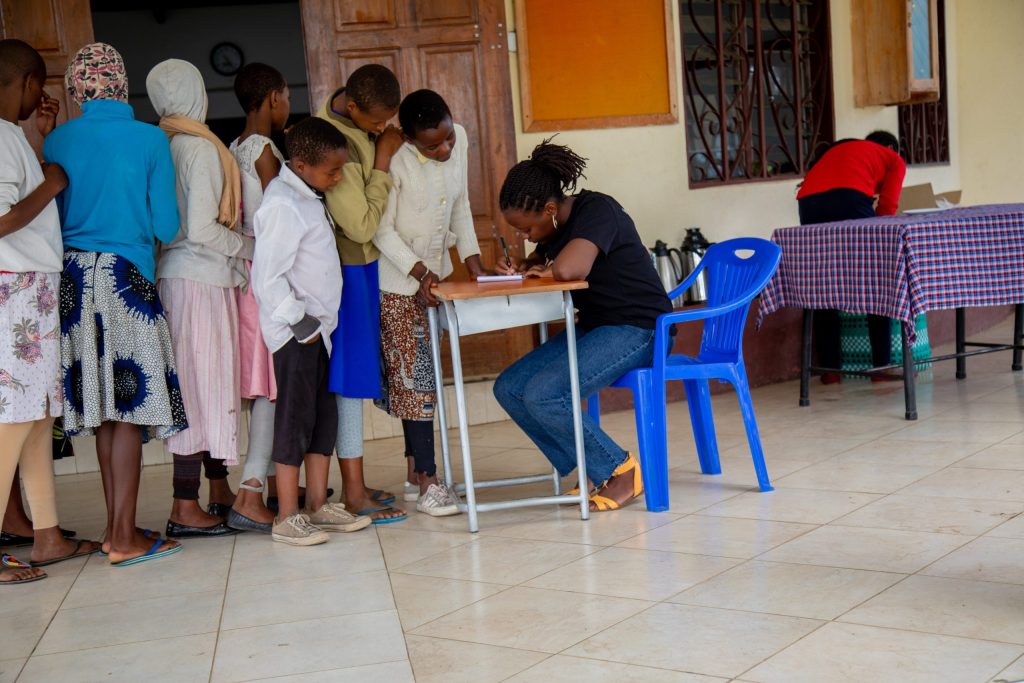
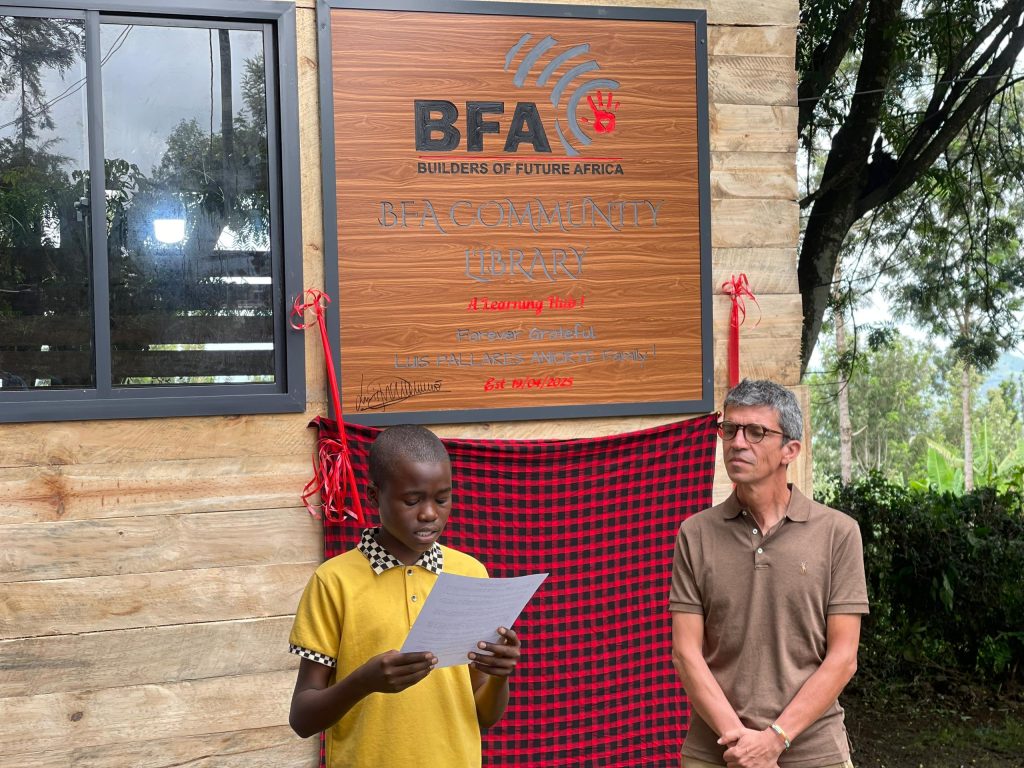
1.2 Free Community Library
Builders of Future Africa is running a community library that serves approximately 75 children every day for 14 hours and 7 days. This educational platform provides a learning environment to students around the community, and we have been recording their significant performances.
The library service delivers high-quality, innovative, and creative storytelling sessions to inspire learning and literacy among the community while also enhancing good listening, speech, language, computer skills, and enjoyment. Moreover, the major target is to increase secondary education performance.
The project aims to alleviate the illiteracy burden in the Lemanyata & Lenjaini community, reduce the number of children dropping out of school, and establish a community library that will serve as a center for lifelong learning and community support.
Funded: 25% covered in the Lemanyata ward
Gap: USD 183,650 for our properties. Donate here
Success stories: Aid my learning
1.3 Early Childhood Development
BFA views Early Childhood Development as being essential for a child’s healthy development. The foundation for later success in life is laid throughout the early childhood years. It is a period when a child’s brain develops quickly, providing opportunities for learning and growth. When a child is raised in a supportive and intellectually engaging environment that supports all of his or her needs—including the psychological, social, spiritual, and physical ones—they can have a good start in life. The youngster also has a better chance of realizing his or her full potential in later life due to this. The absence of one or more key requirements makes it crucial to treat children’s needs comprehensively.
Approach: Every child has a right to early childhood development. The United Nations Convention on the Rights of the Child, Article 6 (Article 6, UNICEF), highlights that the child has “a right to live… and develop healthy” and that every child has “the right to a standard of living that is good enough to meet their physical and mental needs” (Article 27, UNICEF).
Health Program
Every child has the right to health care.
BFA works to improve its beneficiaries’ health and hygiene conditions, reduce or eliminate the number of girls who drop out of school due to early pregnancies and menstruation struggles, and eliminate poor taboos associated with girls’ menstruation.
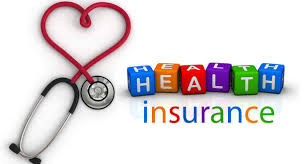
2.1 Health Insurance
BFA provides health insurance to the organization’s beneficiaries, which are fully sponsored children and adolescents, to ensure that they manage to access quality health services.
Funded by: BFA Members
Gap: We have not managed to cover all the sponsored children. Donate here
2.2 Sexual Reproductive Health Rights (SRHR)
Youth and adolescents in Tanzania are exposed to high-risk sexual practices, which increases their chances of negative outcomes. They experience sexual coercion and transactional sex, have several sexual partners, make early sexual debuts, have limited condom usage and condom acceptability, have limited contraception use, and have a misunderstanding about sexual and reproductive health.
They consequently experience pregnancy, contract common STIs like Chlamydia trachomatis and Neisseria gonorrhoeae, as well as HIV, and have several sexual partners, which may be related to a lack of information about STIs and HIV or preventative efforts in sexual and reproductive health in Tanzania (Behav 2009). where teenagers between the ages of 18 and 35 form 70% of Tanzania’s population (UNICEF 2018).
According to the study, young people said there was nowhere in their neighborhoods where they could go to discuss sex-related issues. Lack of equipment, discretion, privacy, and unfavorable service provider attitudes, such as stigma and prejudice. Less than 20% of youth reported knowing where free or easily accessible condoms could be found, and pregnancy is the second most frequent reason for adolescent girls dropping out of secondary school. The majority of youth expressed knowledge of oral contraceptives but ignorance regarding their use and negative effects.
Approaches: Policy Advocacy to Prioritize Youth-Friendly Service Implementation by:
Allocating resources in their health budgets to establish youth-friendly corners within public health facilities. Allocating resources to train health service providers on youth-friendly service provision. Ensuring consistent supplies of essential health commodities in all public health facilities. Creating demand for youth-friendly services at the county level and encouraging partnerships and collaboration with other partners working on the provision of youth-friendly services. SRHS Education.
Funded: BFA is looking for potential partners and donors to further this project. Donate here
Gap: BFA is looking for potential partners and donors to further this project
Success stories: BFA conducted various trainings and interventions, including the “HER VOICE SYMPOSIUM” with collaborations with VOYOTA on discussions around AGYW. BFA is part of the DDA Youth subgroup advocating for SRHR policy reforms.
Empowerment Program
Unlocking Potential, Building Strong Communities
Our Empowerment Program fosters personal and community growth by equipping individuals with the skills, confidence, and opportunities they need to thrive. We focus on creating inclusive environments where everyone can achieve their full potential
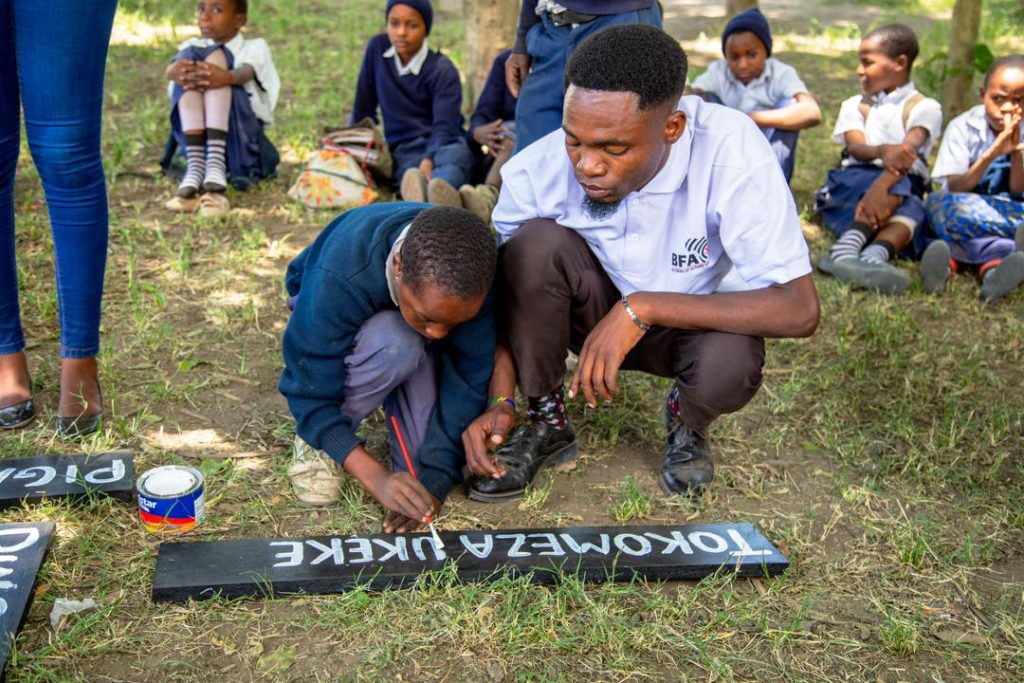
3.1 Gender Support
We intend to support girl children with decision-making skills, inclusion, and life skills as we support their transition to womanhood.
We have customized our curriculum to match their skill sets with the pace of the 21st Century. We inform the minds of girls in businesses, social enterprises, decision-making platforms, policies, and responsible authorities that have the upper hand in their lives.
We are addressing the root causes of Gender-based violence, Violence against children, and Adolescents.
Approach: Primary interventions, referrals, policy advocacies, and negotiation.
Funded: Currently looking for a potential donor. Donate to this cause
3.2 Capacity Development
BFA recognizes the importance of supporting children and youth’s capacities in the area of life skills, and skills-oriented programs include
- Climate change mitigation
- Vocational training
- Apprenticeships, internships, and on-the-job training
- Career counseling
- Talent development
- Mentorship
- Entrepreneurship/small-business training
- Household financial management training
Approach: Skilling up
Funded: Currently looking for a potential donor. Donate to this cause
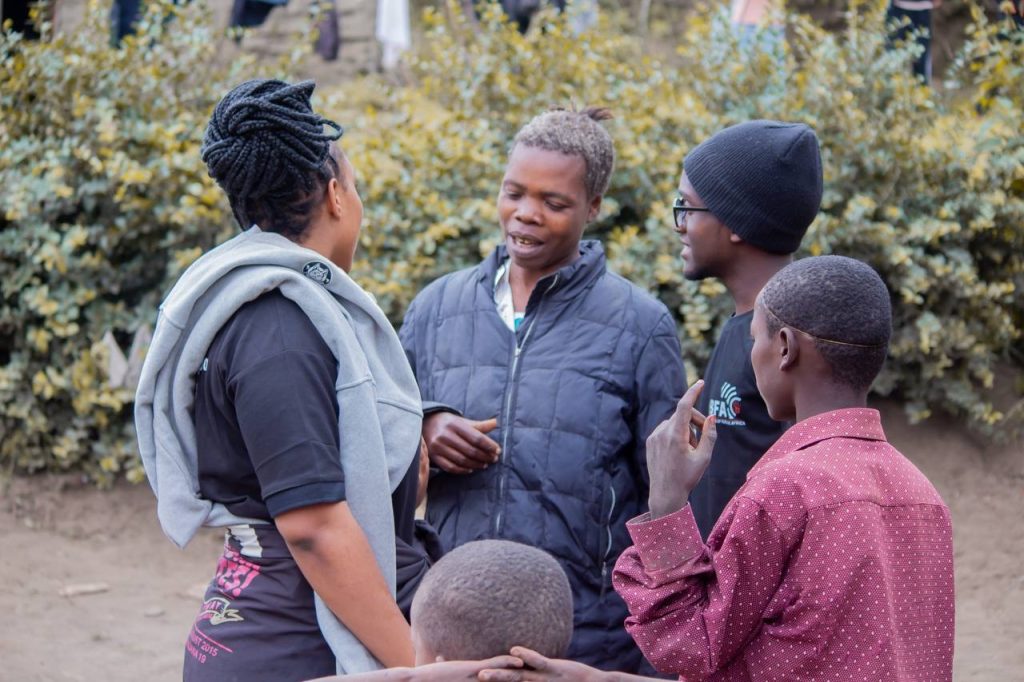
Livelihood Program
Empowering Individuals, Transforming Lives
Our Livelihoods Program enhances quality of life by providing skills training, promoting sustainable agriculture, and empowering marginalized groups. We equip individuals with the tools to build resilient and prosperous lives.
4.1 Economic Strengthening
Children and youths, especially girls, may be pulled out of school by families who have lost their source of income during a crisis to help with household expenses, help out with chores, or take care of younger siblings. To meet their fundamental requirements, children who have lost both parents may resort to destructive livelihood practices.
To address this challenge, BFA is intentionally strengthening the household income through different sustainable approaches.
Approach: savings and loan groups through rotating savings and credit associations, village savings and loan associations (VSLAs), savings and internal lending communities (SILCs), and self-help groups (SHGs). Income-generating activities (IGAs), Skills training, job creation, and linkage with the government in planning, advocacy, and coordination of SP policies and approaches
Gap is looking for a potential partner to kick off a project to support youth, teen mothers, and school dropouts.
Funded by: BFA is looking for potential partners and donors to further this project. Donate here
Successful stories: BFA is carrying out the AGPP project under the CRVPF to support adolescent mothers and teen mothers.
Gap: BFA is looking for potential partners and donors to further this project
Success stories: BFA conducted various trainings and interventions, including the “HER VOICE SYMPOSIUM” with collaborations with VOYOTA on discussions around AGYW. BFA is part of the DDA Youth subgroup advocating for SRHR policy reforms.
4.2 Career Development
BFA supports members by connecting them with potential scholarships, mentorship programs, career fairs and expos, volunteering opportunities, internships, and the chance to practice their careers at our offices. BFA helps members of organizations, who are primarily high school students, university and college students, and mid-career professionals, further their careers. We offer leadership training sessions and refer our members to these co-visionary platforms in the hope that we will help them build the kind of character that will support their desire to be on this planet, which is primarily to serve communities in a giving way.
Approach: Leadership, community services
Success stories: We have managed to link up 72 members with scholarships for the last 3 years, we have been conducting 12 career expos every year, and we have secured partners including Hi Initiative (HLI), MasterCard Foundation, USIU Leadership Initiative (HLD), MasterCard Foundation, USIU, and Ashesi University.
Gap: Looking for potential partners to further our impacts partnership here

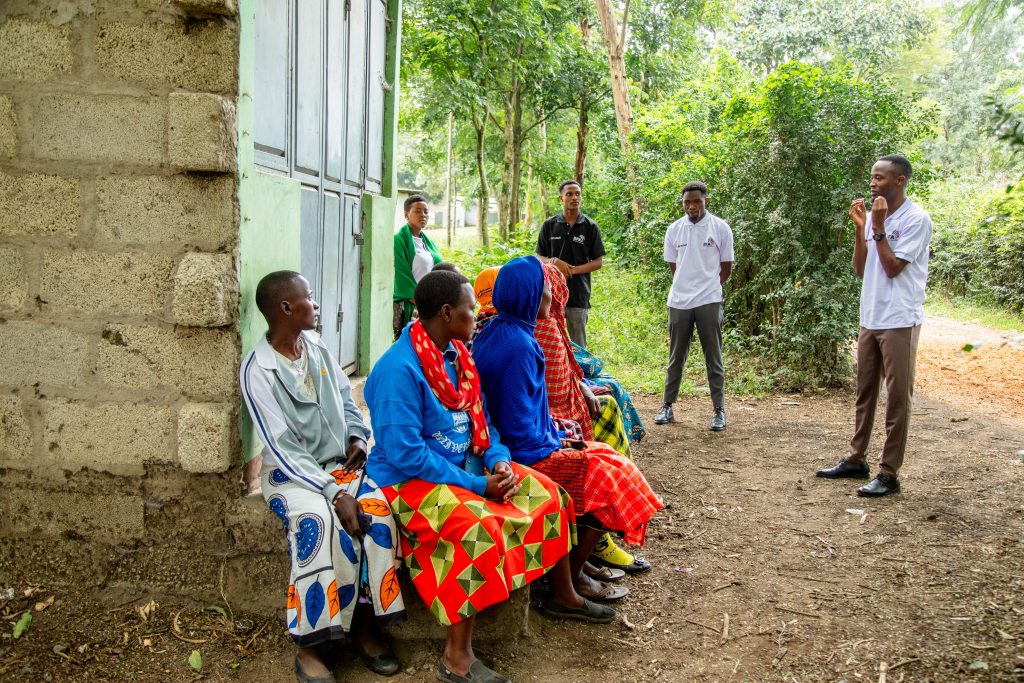
4.3 Inclusion and Policy Advocacy
BFA is focused on making sure that people with disabilities, young people, women, and MVCs are included in all significant sectors and that their perspectives are heard and positively reacted to.
We are devoting our advocacy efforts to issues affecting children and youth both domestically and internationally, including jobs, health, gender, climate change, and good governance.
Approach: research development, social media campaigns, Press releases, networks, and coalition
Gap: Looking for research units, media houses, and potential networks/coalition to address social challenges partnership here
SUCCESS STORIES:
Beneficiary Testimonials
Meet Anneth Willson, a Tanzanian girl aged 19, She lives in Ekenywa Arusha and was born in a family of two brothers and a sister, She has been a BFA beneficiary since 2013 (then BHA) when she was in grade 3.
Anneth is now a college student at the Tengeru Institute of Community Development pursuing a certificate in Gender and Community Development. Anneth likes writing poems and stories, Her dream is to become a phenomenal writer.
She has to say this: ” When my mother could no longer afford to pay for my school fees, it felt like my education journey ended there.BFA stepped in and changed the whole story; they not only catered to my tuition fee but also nurtured my talents and supported my academic and personal growth. They reawakened the vision that was dead in me, they haven’t given up on me or my dreams to date… I can’t give up on myself either. I recognize and appreciate the BFA’s contribution to my life and my family. I hope I’ll be able to help a stranger in need, too, because that is what they did.
I love BFA!“
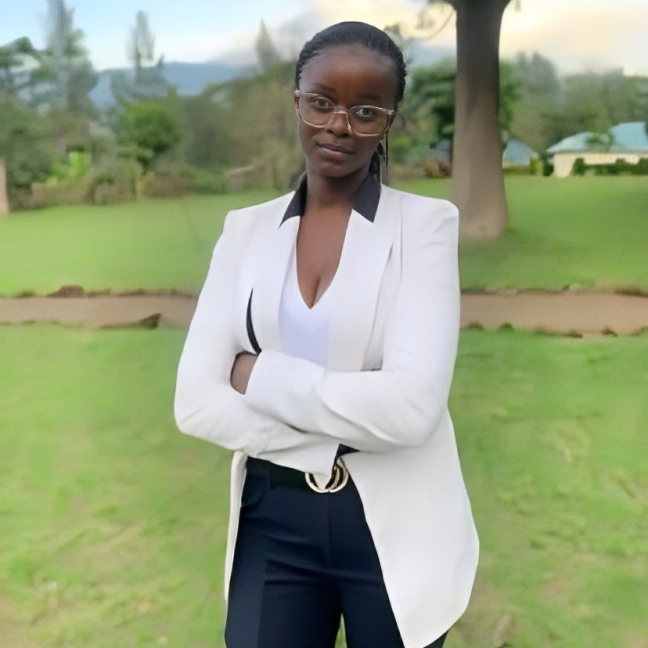
Voice testimony
Meet Evaline John from Osiliga Secondary School as she shares how the BFA community library program has significantly impacted her educational journey.
Case Study.
Community Feedback.
ᴛʜɪꜱ ɪꜱɴ’ᴛ ᴊᴜꜱᴛ ᴀ ʙᴜɪʟᴅɪɴɢ… ɪᴛ’ꜱ ᴀ ʜᴏᴍᴇ ꜰᴏʀ ᴏᴜʀ ᴅʀᴇᴀᴍꜱ, ᴀ ɢᴀʀᴀɢᴇ ᴛᴏ ꜱʜᴀᴘᴇ ᴏᴜʀ ꜰᴜᴛᴜʀᴇ.” – ᴀ ʙꜰᴀ ᴋɪᴅ.
Our Future initiatives :
Sustainability and Resource Mobilization
– Develop a long-term sustainability plan to ensure the continuation of programs beyond donor funding.
– Strengthen fundraising efforts through partnerships, grants, corporate sponsorships, and individual donations.
– Implement monitoring and evaluation systems to track the impact and effectiveness of programs and use the data for reporting and attracting further support.
Enhanced Health Initiatives
– Expand the coverage of health insurance to reach all sponsored children and adolescents.
– Collaborate with healthcare providers and organizations to offer comprehensive healthcare services.
– Develop targeted programs to address sexual and reproductive health rights (SRHR) among youth and adolescents, including awareness campaigns and educational initiatives.
Expansion of Education Program
– Increase the number of beneficiaries and reach more rural and semi-rural areas.
– Establish additional community libraries and educational centers.
– Strengthen partnerships with local schools and educational institutions to provide support and resources.
Community Empowerment
– Continue to support gender equality and address gender-based violence (GBV) through advocacy, education, and referral services.
– Expand capacity development programs to provide life skills, vocational training, entrepreneurship opportunities, and mentorship to children and youth.
– Strengthen partnerships with government agencies and NGOs to support economic strengthening initiatives, such as income-generating activities and job creation.
Inclusion and Policy Advocacy
– Establish research units to conduct studies on social challenges and policy recommendations.
– Increase social media campaigns, press releases, and networking efforts to amplify the voices of people with disabilities, youth, women, and the most vulnerable children (MVCs).
– Form coalitions and partnerships with like-minded organizations to advocate for positive social changes and influence policy decisions.
Join us in building a brighter future
Join Builders and uplift marginalized communities. Together, we foster growth and empower the youth.
